The Reopening Playbook: Ukraine
Preparing for the return to work: what Ukrainian employers should be thinking about right now
While Ukraine remains in lockdown until at least 22 May 2020, with the easing of some requirements for particular businesses starting from 11 May 2020, now is the time for employers to consider what happens next: how to transition to business as usual, when is it safe to resume working and how will homeworkers return to the office?
Things are changing rapidly: what is correct now may not be correct tomorrow. Companies that have not already done so, must take steps to adapt working conditions to the new requirements. As a guide, below we have set out at a high-level six key areas employers should consider when planning to reopen. In addition, we have provided answers to the most pertinent questions companies have right now.
If you wish to implement your own playbook, with each of the topics below being explored in more detail according to your specific circumstances, please get in touch with us to discuss this further.
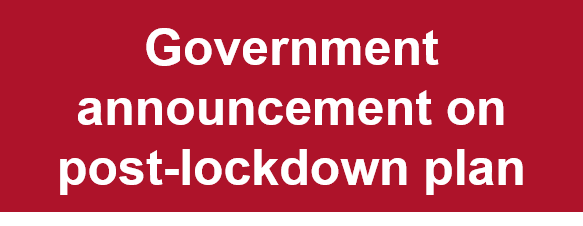 |
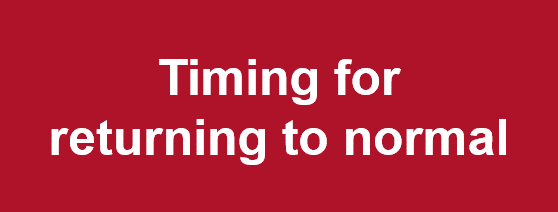 |
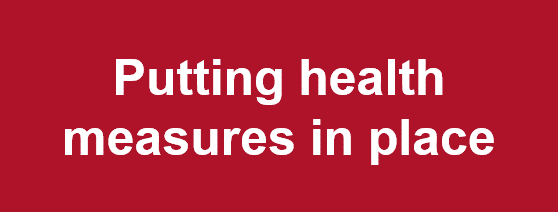 |
 |
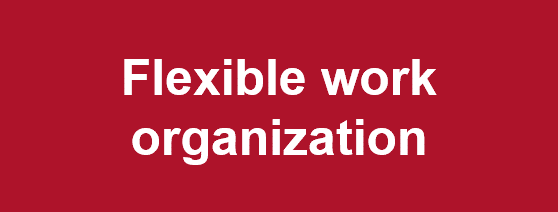 |
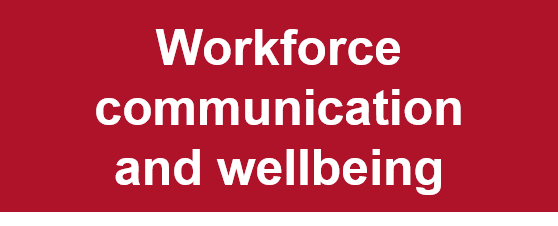 |
Government announcement on post-lockdown plan
- On 24 April 2020, the prime minister of Ukraine presented a gradual plan for lifting quarantine restrictions and coming out of quarantine (“Post-lockdown Plan“). It consists of five stages:
Stage 2: opening hotels and fitness centers (with certain restrictions); permitting sporting competitions (with no more than 50 participants and without spectators); resuming school attendance for graduating classes; take-away mode of operation for eating establishments, etc.
Stage 3: opening theaters and cinemas, playgrounds, certain educational institutions, shopping malls; resuming normal operation of eating establishments (with visitors); lifting restrictions on intercity passenger transport within one region, etc.
Stage 4: resuming work of public land transport and metro; opening culture and educational institutions; lifting restrictions on provision of scheduled medical and dental services; resuming full operation of fitness centers, etc.
Stage 5: lifting other restrictions, except for those imposed by local authorities in certain regions.
- The transition from one stage to another will depend on the number of new confirmed cases of COVID-19 and the pace of the virus spread. The link to the Post-lockdown Plan.
Timing for returning to normal
- There is no specific government-mandated or recommended return date for office employees. Although offices have been advised to switch to working remotely, there has not been express prohibition on continuing work in the office either during or post-quarantine. Office-based businesses (e.g., consultants, IT developers, trading companies, etc.) can continue to operate.
- Certain businesses (hairdressing and beauty salons, non-food stores, notaries, lawyers, auditors, etc.) are permitted to reopen starting from 11 May 2020, subject to compliance with defined anti-epidemic measures.
- Employers should consider phased reopening with a partial return of some functions and shift schedules for employees, where possible. Since public land transport and metropolitan services only resume work on the fourth stage of the Post-lockdown Plan, employees’ return to the office will largely depend on transport availability. Alternatively, companies may arrange transportation options for employees providing essential services.
- Closed schools and child care facilities could also be an issue for some employees. If the employee’s personal circumstances prevent them from coming to the office, this must be assessed on a case-by-case basis between the employee and the employer.
Putting health measures in place
- Perform thermometry and do not admit to work any employee with symptoms of a respiratory infection.*
- Communicate with employees regarding individual prevention measures and how to act in case the symptoms of virus infection are identified among employees.*
- Minimize the number of employees who are in contact with clients/visitors and implement remote consulting and service providing.
- Ensure availability of hygiene products (soap, sanitizers, disposable towels, etc.) and medical masks for employees and visitors.*
- Display posters that encourage hand hygiene around the workplace.
- Constantly inform visitors of the anti-epidemic measures in place.*
- Clean and disinfect company premises.*
* – currently mandatory in Kyiv
|
Should the employer report that an employee has a confirmed case of COVID-19? |
There is no express obligation. However, in Kyiv, employers are required to immediately report to medical institutions any cases of employees displaying signs of respiratory infection. |
|
Does the employer need to communicate with government agencies on general matters regarding COVID-19? |
As of today, there is no obligation to make any filings with respect to temperature screening or other hygiene requirements at the workplace. |
|
Can the employer require an employee to see a doctor? |
According to the current government recommendations, an employee with symptoms of the disease must be immediately isolated and referred for medical examination. |
|
Are there any mandatory requirements with regard to social distancing in offices? |
There are only general recommendations to ensure social distancing between (i) employees; and (ii) employees and visitors, if possible. For companies operating in Kyiv, there are some mandatory obligations: employees serving visitors should keep them (and other employees) at a distance of at least 1.5 meters, unless safety screens for protection of such employees have been installed. There are mandatory obligations regarding social distancing (at least 1.5 meters between visitors and clients) for businesses that can reopen starting from 11 May 2020, such as hairdressing and beauty salons, catering establishments, notaries, advocates, auditors, etc. |
|
Is it obligatory to appoint a person responsible for handling regulatory/reporting matters relating to COVID-19? |
There is no such obligation. However, Ukrainian regulations require that employers with 50 staff or more have a work safety responsible person. This individual would, by default, be responsible for ensuring compliance with all applicable preventive and anti-epidemic measures. However, you may choose to task another person with implementing the COVID-related actions. |
Workspace rethinking
- Reorganize work desks and open spaces to ensure physical distance.
- Restrict/regulate access to and the use of collective spaces (cafeteria and break rooms). Consider usage of disposable forks, spoons and plates.
- Promote limited conference room meetings and collective gatherings. Ensure the availability of alcohol gel and/or wipes with antiseptic in places of common use.
- Manage the flow of people within the company using road markings, one-way systems, etc.
Flexible work organization
- Consider a change to flexible working hours for some employees on a permanent basis. Establishing flexible working time arrangements for employees allows providing remuneration to the employees pro rata to the number of the hours actually worked.
- Implement team rotation and different shift schedules.
- Make remote work a permanent option for job positions that allowing it.
- Consider examining the employees’ workplaces at home to ensure workplace safety.
- Update, and develop and approve if absent, remote work, confidentiality and cyber protection corporate policies.
|
Is the employer obliged to establish remote work for employees? |
No, the Ukrainian government only encourage companies to use such arrangements. |
|
Is there a requirement to have a limited number of employees in the office at one time after reopening? |
There is no such blanket requirement for the post-quarantine period. It is generally recommended to implement shift and remote work for employees to have fewer employees gathered together in the office. |
|
Is there any specific training on safety/hygiene protocol for employees returning to offices after reopening? |
There is no mandatory training on safety/hygiene protocol. However, it is recommended to communicate with employees regarding individual prevention measures and how to act in case the symptoms of virus infection are identified among employees, It is mandatory for companies operating in Kyiv. |
|
Is it possible to adjust the working hours to the predicted peaks and valleys on workload after reopening? |
It is not possible to adjust the employees’ working hours every time there is a limited workload. However, it is possible to establish flexible or cumulative working hours for the employees so that the employees receive remuneration for hours actually worked. |
Workforce communication and wellbeing
Consider appointing employees responsible for preventive and anti-epidemic measures, daily monitoring of restrictive measures and prompt implementation of necessary measures.
Remain in constant communication with employees as business reopens so employees know what to expect upon returning to work.
Managers should remain in regular communication with their teams to ensure they are kept up to date with new procedures, leave entitlements, and to share concerns, whether these are about work or their personal circumstances.
Protect vulnerable groups within your office and think about repurposing employees whose job position might not be essential now.
Contact us
Lina Nemchenko
Partner Baker McKenzie
Mariana Marchuk
Counsel Baker McKenzie

